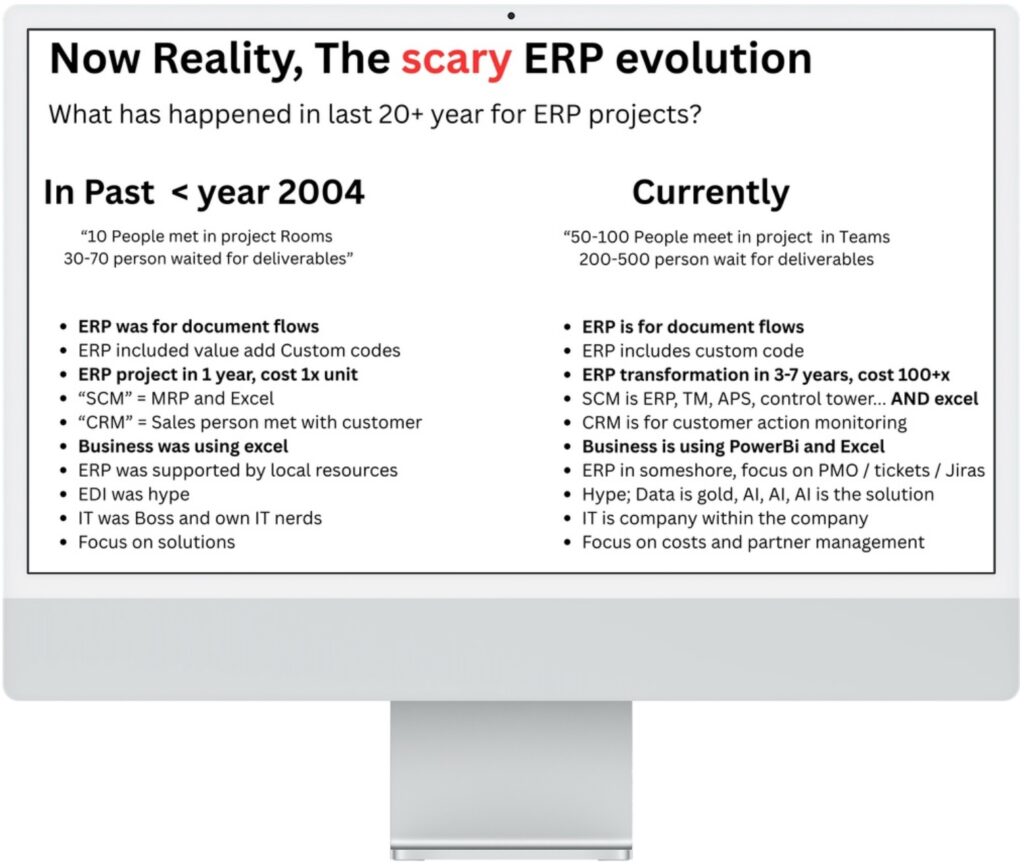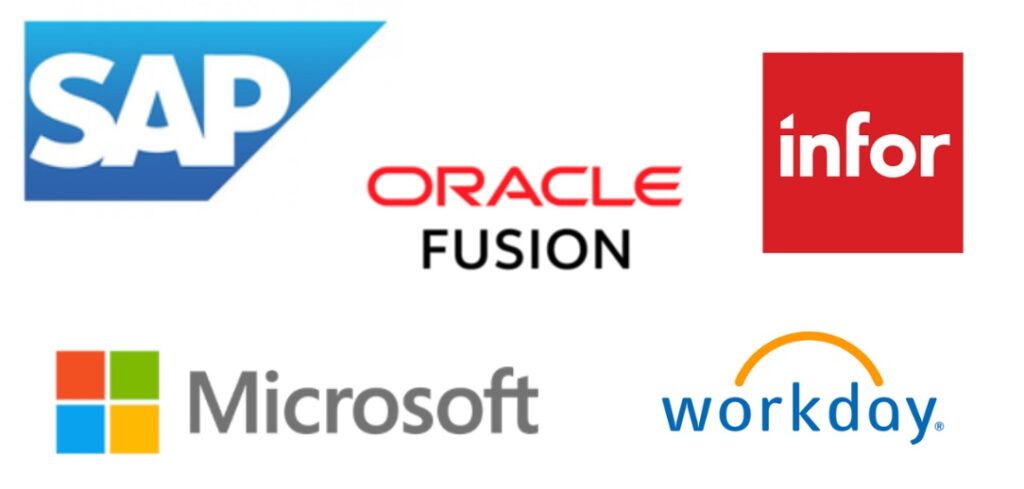What about ERP?

Currently
Too often, after years of ERP implementation projects and rollouts, the outcome feels disappointing. The IT team celebrates the “MVP and the journey”, but the business is left dissatisfied — stuck with suboptimal solutions, leaning on Excel and Power BI to keep daily operations running.
Why does this keep happening?
I think we know some of the answers. But the real question is: are we ready to change the approach? What role should the business organization — CxOs, SVPs, VPs, Directors — truly play in making ERP implementation succeed? These are questions worth asking before signing up for yet another easy, IT-vendor-led program. Is the template with minimum internal effort really the way to success. No, it has never been that.
Bridgewright believes there’s room for change. There are options for a business- and value-oriented approach to make IT opportunities like ERP work for the business, not just alongside it. But making that shift requires new thinking, fresh approaches, and courage in both business operations and IT.
The real challenge is not ERP itself — it’s the way we approach it. The 2020s give us a chance to do things differently. The question is: who dares to step forward, bridge the gap, and create ERP success stories for the 2030s?

Join to community, learn and challenge the bridging approach
Start practicing with ERP related key questions
- “In the 2020s, must ERP renewal still be done the old way — or could it be different this time?”
- How can we truly unlock the business opportunities these modern ERPs were built for — instead of forcing them to behave like yesterday’s tools?
- Are we bold enough to stop making new ERPs look like the old ones, and start using them to capture real business value?
Start exploring the power of ‘what if’ thinking
- What if : The question isn’t just about adding more — it’s about unlocking the full potential of what we already have, while building the capabilities that truly create value.